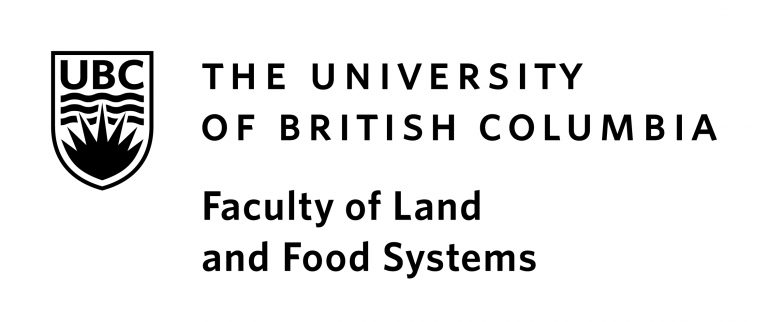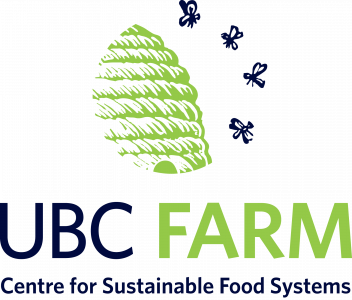An Indigenous ecologist on why we need to stop and listen to save the planet
By sandland on April 24, 2024
An Indigenous ecologist on why we need to stop and listen to save the planet

Image of Jennifer Grenz in a field plot on a farm
April 19th, 2024
Forestry professor Dr. Jennifer Grenz discussed her new book Medicine Wheel forthe Planet: A journey toward personal and ecological healing, and how joining Western science and an Indigenous worldview makes for better science.
Indigenous ecologist Jennifer Grenz has spent decades working to protect ecosystems in the Pacific Northwest through restoration and invasive species management. But recently, frustrated by the limitations of her work, she set out on a mission to incorporate more of her Indigenous worldview into her traditional Western science work.
Read the full article at CBC News
Read More | No Comments
By sandland on March 14, 2024
Reshaping agriculture: How to fight climate change with farming
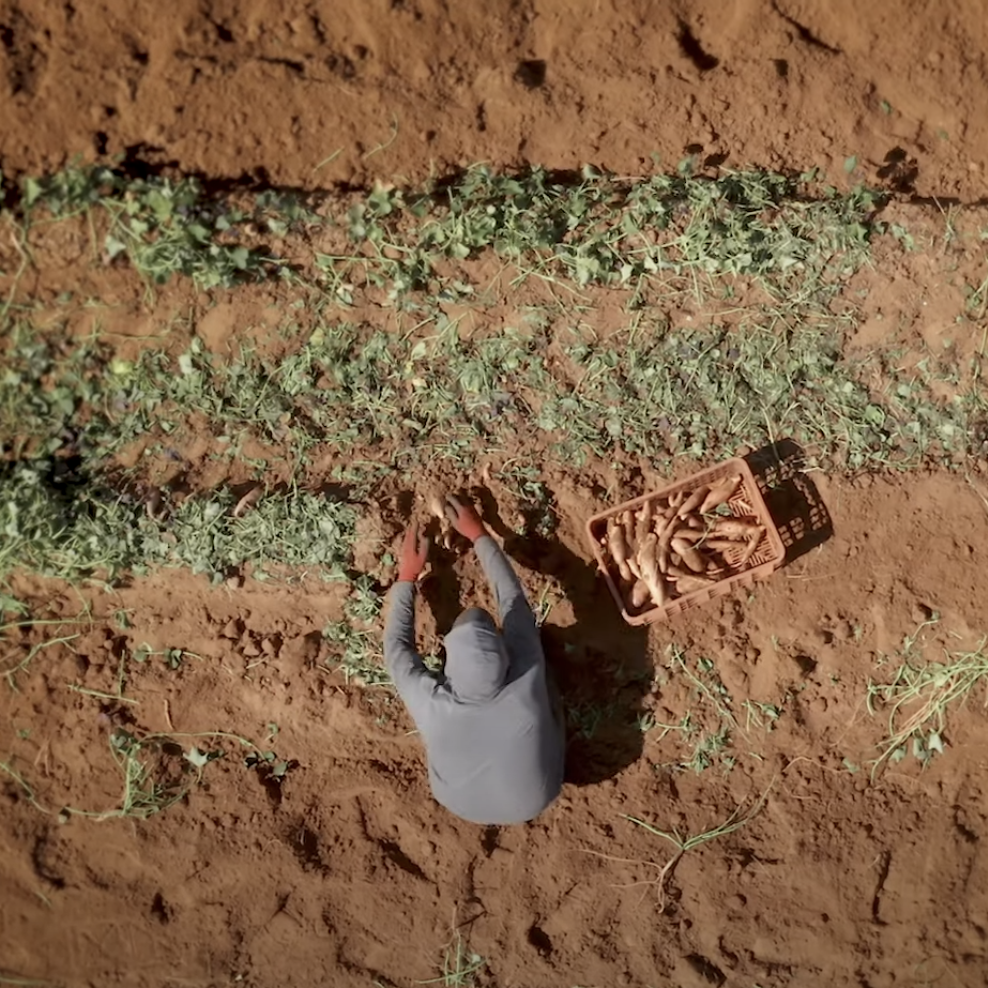
Aerial photo of someone farming
March 8th, 2024
The future of farming is about more than just producing food—agriculture can help combat climate change. But we need to transform the way we think about farming. When we consider farmers as stewards of the land, modern agricultural practices can help us build more resilient local food systems.
Dr. Sean Smukler, Director of the Centre for Sustainable Food Systems at UBC Farm, explains how we need to support farmers so they can become more resilient to changing weather patterns and other effects of climate change. Researchers are developing and testing strategies to help farmers adapt their practices so they can better nurture local ecosystems.
Watch the full video on YouTube
Read More | No Comments
By sandland on March 4, 2024
In Canada, the Forest Gardens of the Indigenous Kitselas Emerge From Oblivion

Floor monolith from the peripheral forest shown by Desi Bolton, indigenous to the Kitselas people © Jean-Thomas Cornélis
January 16th, 2024
Jean-Thomas Cornélis talks about his research with Jennifer Grenz, Chelsey Armstrong (SFU), and Kitselas, Sts’ailes and Hanamuwx Indigenous partners. Their research combines archeology and pedology, documenting Indigenous forest-garden agricultural methods. Cornélis works hand-in-hand with the indigenous Kitselas to document the forest-garden agricultural method used by their ancestors.
“These people were therefore not only hunter-gatherers, but also already farmers in the forests,” explains Professor Cornélis. Documenting the forest-garden method, and thereby proving the multi-millennial use – which is moreover innovative, intensive and multifunctional – of this piece of territory could constitute an important element in the fight led by the Kitselas people to recover the land of their ancestors.
Read the full article at DailyScience
Read More | No Comments
By melanie kuxdorf on February 22, 2024
We are thrilled to announce our Strategic Plan 2024-2029.
The CSFS is uniquely positioned to develop solutions to the problems facing our food system. Grounded by our connection to the land at the UBC Farm, our aim is to have an impact in four key areas: food security, climate, biodiversity, and decolonization.
Read More | No Comments
By sandland on January 11, 2024
Ontario woman files proposed class-action lawsuit over salmonella-tainted cantaloupes
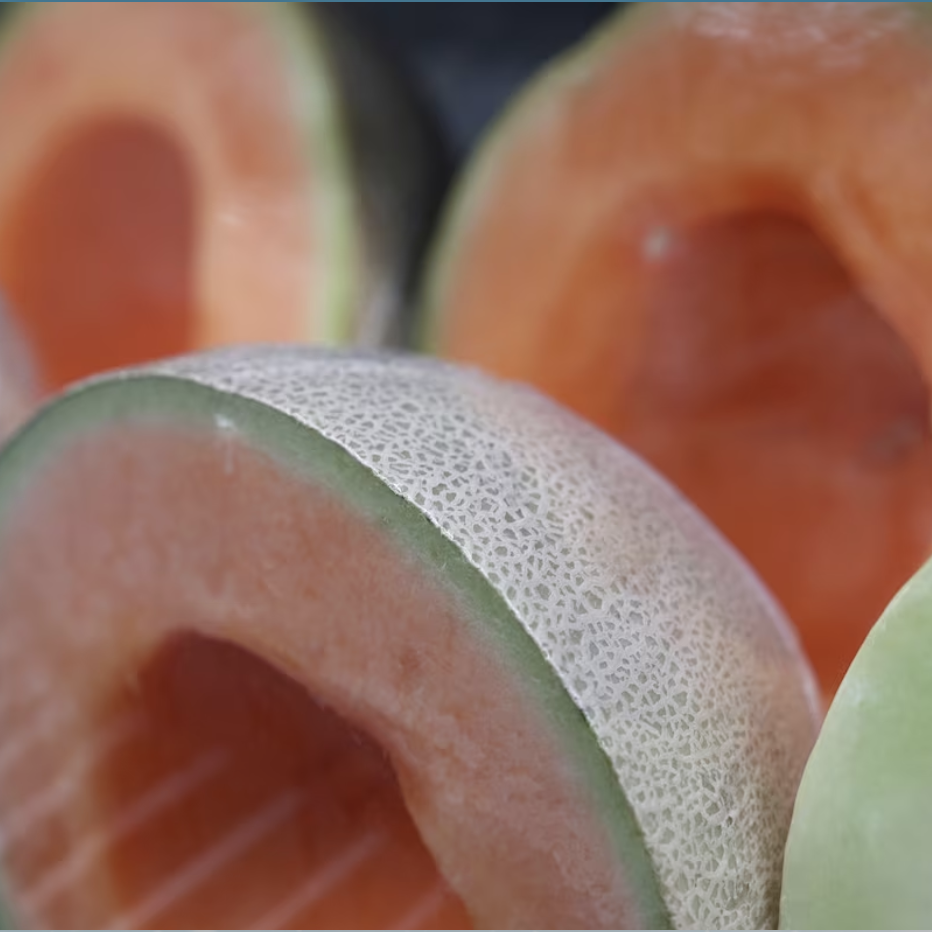
Image of cantaloupe. Credits: Globe and Mail
January 3rd, 2024
An Ontario woman who became ill after eating cantaloupe is the lead plaintiff in a second proposed class-action lawsuit filed over cantaloupe-linked salmonella infections across the country.
Cantaloupe is grown in bushes and is particularly vulnerable to salmonella carried by wild animals, such as reptiles whose feces can contaminate the soil. “A major feature of salmonella compared to many other food-borne pathogens that make people sick is that it can be carried by a very wide variety of hosts,” associate professor of food safety engineering at UBC said, comparing it to E. coli, which is mainly carried by cattle.
Seven people in Canada have died from cantaloupe-linked salmonella and there have been 164 laboratory-confirmed cases in eight provinces, 111 of them in Quebec, the Public Health Agency of Canada said in its latest update last month.
Read More | No Comments
By sandland on December 5, 2023
Food at the Tipping Point: Ways Forward from a Food System in Crisis
Climate Resilient Farming: Bok Choy and Rice
Learn about Wendel’s research on rice growing techniques
Learn about Amanda’s research on shading bok choy
Climate Resilient Farming: Bok Choy and Rice
Droughts, wildfires, floods and heatwaves are happening more often and with greater force every year. Farmers are suffering great losses worldwide. It has become clear that innovation and new practices are needed in order to adapt to these changing normals. As part of the Sustainable Agriculture program, undergraduate students at Kwantlen Polytechnic University (KPU) learn how to be part of the solution and complete their own research project that addresses the challenges facing our food system today.
Wendel and Amanda are two students in the program that wanted to find more sustainable ways to grow food under two arising environmental conditions: water instability and warmer summers.
Rice is often grown in paddies that are flooded with water in order to suppress weeds and competition. However, with droughts becoming more severe over the last few years, water usage in agriculture has become an area of significant concern. For her research, Wendel decided to grow rice in dry fields to see if we can reduce our water usage in this globally important crop.
Producing seeds is a natural part of a plant’s life cycle. However, sometimes a vegetable crop produces flowers and goes to seed earlier than we’d like it to. This is called “bolting”, an irreversible process that changes the flavour of the leaves that we harvest for food, such as lettuce, spinach, and bok choy, and makes the produce unsellable. As a result of climate change, we are seeing higher summer temperatures that stresses plants and causes them to bolt early on in the season. In her research, Amanda tested different methods of shading to see if it would help reduce the rate of bolting in bok choy crops.
Check out our two short videos detailing Wendel and Amanda’s research.
Find more information on the student research projects and results here.
Read More | No Comments
By sandland on November 21, 2023
Food at the Tipping Point: Ways Forward from a Food System in Crisis
Is the Future too Bright?
Meet Daphne and the “ALANizers” she designed
Learn about why research on ALAN is important
Is the Future too Bright?
Our night skies are becoming brighter and brighter with population growth and increased access to electricity. However, while lights extend our days and help us navigate at night, its impacts on our fellow living beings isn’t quite so positive.
Daphne Chevalier, a master’s student in the PIEE lab at UBC, is researching the effects of artificial light at night (known as ALAN) on insects and bats, using the UBC Farm as her study area. ALAN is a significant threat to insect populations as studies have suggested that it is a major driver of declines in several key insect species, for example, through increased predation by bats. These lights exert a powerful attractive force on some insects that can interfere with their navigation and behaviour; we have all had experience with moths being attracted to our porch lights!
As pollinators, pest-controllers and nutrient recyclers, insects are foundational to our food system, and understanding how we can adapt our nighttime activities to their behaviour will be critical to maintaining healthy insect populations.
Watch the short videos above to learn more about what motivated Daphne’s research and how she’s monitoring the effects of ALAN.
Read More | No Comments
By sandland on November 21, 2023
Food at the Tipping Point: Ways Forward from a Food System in Crisis
Beyond the Fields: Exploring On-Farm Biodiversity
Dr. Matt Mitchell talks about the biodiversity project at the UBC Farm
Why monitor biodiversity? Matt Mitchell explains the purpose behind the project
See a day in the life of the project’s Work Learn students
Beyond the Fields: Exploring On-Farm Biodiversity
When we talk of climate change, biodiversity protection is usually one of the main things we hear about. But why is it so important?
While the importance of biodiversity is manifold, in the context of agriculture, biodiversity is the foundation of agricultural productivity and contributes essential ecosystem functions and services (benefits we receive from the natural environment). Pest control, pollination, and storing carbon are all examples of ecosystem services that biodiversity provides on farms.
At the UBC Farm, the diversity of life is being measured each year through the Long Term Biodiversity Monitoring project. The project helps us understand how biodiversity is changing over time and how it’s affecting important ecosystem services that aid people, help crops grow, and contribute to overall ecosystem sustainability. The learnings from this small-scale research can be applied to communicate the broader societal and ecological benefits of biodiversity, and demonstrate how land-use changes are impacting biodiversity.
Check out these short videos to learn more and meet some of the people involved with the project.
Read More | No Comments
By sandland on November 20, 2023
LFS 496 Student Profile: Asalah, Farm hand at City Beet Farm

Supervisor: Liana Glass
What do you study?
Environment and Sustainability
What was your work placement?
Assisting with harvesting vegetables + flowers for City Beet’s weekly CSA and markets!
What did you get out of doing this placement?
I loved getting a deeper look + being immersed in our local food system. Getting my hands dirty every week and harvesting veg that goes to local organizations and their markets was so fulfilling
What was the most surprising thing about your work placement?
Contributing to a regenerative and sustainable food system can start small! City Beet Farm is a testament to that – by growing in front and backyards, they demonstrate how even little spaces can yield bountiful harvests. I dream of our local food system to be one where abundance is shared, public spaces are used to grow food or native gardens, and where everyone can feel more empowered and have access to be part of the system – whether that be through growing food themselves or getting to know and supporting their local farmers!
Why are you interested in working within the food system?
Why are you interested in working within the food system? All issues are interconnected and none exist in isolation, so after working in the environmental space for many years, I found that digging my hands in the soil and learning + being part of our food system was a tangible way for me to, quite literally get my hands dirty and do my part in working towards more regenerative, just, and equitable communities. I believe that the food system is the foundation of everything, and with one that is healthy, local, and accessible, our local communities can better work on building better futures, in all ways. Starting local and rippling outwards!
What would you like other students to know about the CSFS at UBC Farm?
Working in the food system and harvesting opportunities with LFS and the UBC Farm is fulfilling – it’s a wonderful way to cultivate meaningful connections, become equipped with hands on knowledge, and feel empowered to be a part in creating a more regenerative food system!
Read More | No Comments
By sandland on November 20, 2023
LFS 496 Student Profile: Malli, Farm hand at City Beet Farm
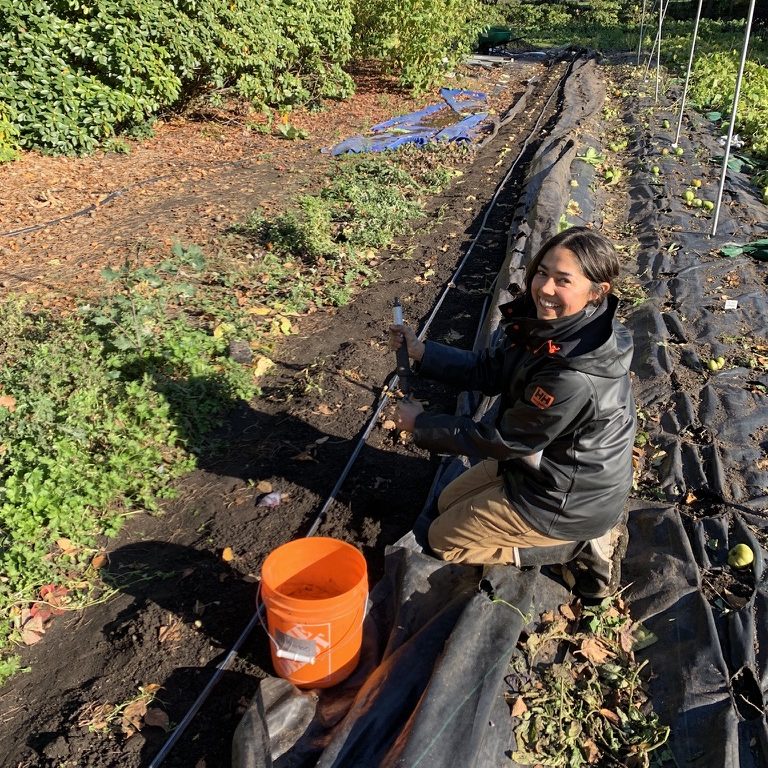
Supervisor: Liana Glass
What do you study?
Urban Forestry
What was your work placement?
Helping out with harvesting and processing for CSA boxes and later soil testing project
What did you get out of doing this placement?
Working with City Beet Farm, I gained experience working on a novel and unique farm. I was inspired by the impact and abundance grown within the heart of urban Vancouver
What was the most surprising thing about your work placement?
The volume and quality of vegetables grown by City Beet!
Why are you interested in working within the food system?
Growing food is a meaningful way for me to contribute to my community.
What would you like other students to know about the CSFS at UBC Farm?
There are a range of opportunities to become involved in!
Read More | No Comments






